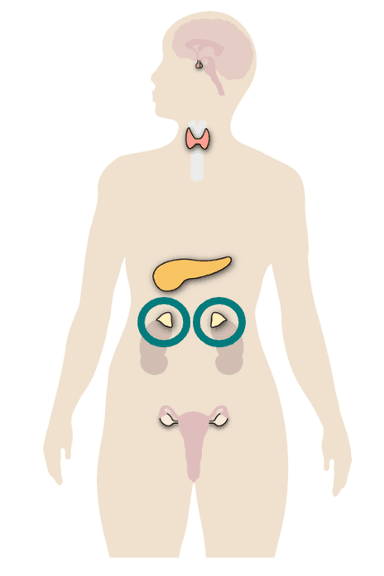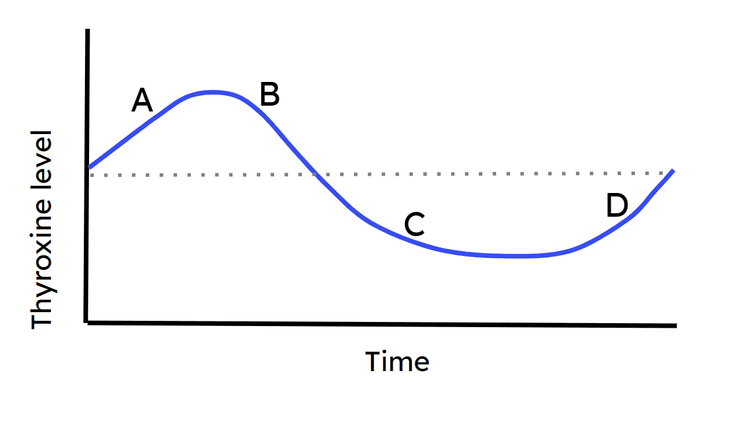Adrenaline, thyroxine and negative feedback, including TRH
I can describe the roles of the hormones adrenaline and thyroxine in the human body, and explain what is meant by negative feedback.
Adrenaline, thyroxine and negative feedback, including TRH
I can describe the roles of the hormones adrenaline and thyroxine in the human body, and explain what is meant by negative feedback.
These resources will be removed by end of Summer Term 2025.
Switch to our new teaching resources now - designed by teachers and leading subject experts, and tested in classrooms.
These resources were created for remote use during the pandemic and are not designed for classroom teaching.
Lesson details
Key learning points
- The hormone adrenaline is secreted by the adrenal gland during stress; it causes the body to prepare for rapid action.
- The hormone thyroxine is secreted by the thyroid gland; it controls growth and the rates of chemical reactions in cells.
- The pituitary gland secretes hormones that control other glands.
- Hypothalamus secretes TRH; this causes pituitary gland to secrete TSH; this causes thyroid gland to secrete thyroxine.
- Thyroxine causes the pituitary gland to stop secreting TSH; this is an example of negative feedback.
Keywords
Adrenaline - A hormone secreted by the adrenal glands in times of fear or stress.
Thyroxine - A hormone secreted by the thyroid gland that stimulates the basal metabolic rate.
Negative feedback - A mechanism where changes to conditions cause an action to reverse the change, keeping conditions stable.
Gland - An organ or tissues that produces and secretes substances, such as hormones.
Common misconception
Negative feedback only works to reverse high levels back to normal.
The slide deck has several slides where changes are described as being high and low and there is a CFU question in the final learning cycle that specifically assesses this misconception.
To help you plan your year 10 combined science lesson on: Adrenaline, thyroxine and negative feedback, including TRH, download all teaching resources for free and adapt to suit your pupils' needs...
To help you plan your year 10 combined science lesson on: Adrenaline, thyroxine and negative feedback, including TRH, download all teaching resources for free and adapt to suit your pupils' needs.
The starter quiz will activate and check your pupils' prior knowledge, with versions available both with and without answers in PDF format.
We use learning cycles to break down learning into key concepts or ideas linked to the learning outcome. Each learning cycle features explanations with checks for understanding and practice tasks with feedback. All of this is found in our slide decks, ready for you to download and edit. The practice tasks are also available as printable worksheets and some lessons have additional materials with extra material you might need for teaching the lesson.
The assessment exit quiz will test your pupils' understanding of the key learning points.
Our video is a tool for planning, showing how other teachers might teach the lesson, offering helpful tips, modelled explanations and inspiration for your own delivery in the classroom. Plus, you can set it as homework or revision for pupils and keep their learning on track by sharing an online pupil version of this lesson.
Explore more key stage 4 combined science lessons from the Coordination and control: hormones and the human endocrine system unit, dive into the full secondary combined science curriculum, or learn more about lesson planning.

Licence
Starter quiz
6 Questions

Exit quiz
6 Questions
adrenal gland
pituitary gland
thyroid gland
hypothalamus



